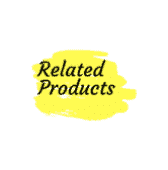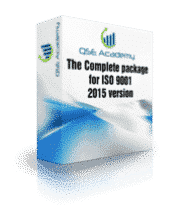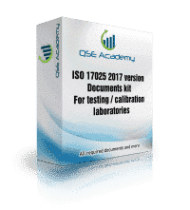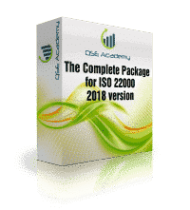IATF 16949 2016 Package
2025-03-27 11:48IATF 16949 2016 Package
Get your accreditation at the lowest possible cost


IATF 16949:2016 complete package
2016 version



Price : 489 $
Certification Made Simple and Accessible for Your Business
The complete IATF 16949 package is a comprehensive document package that contains everything from all the templates of procedures, processes, forms, checklists, tools, detailed guides, and instructions needed to:
- Start your IATF 16949 process.
- Create your IATF 16949 documentation.
- Quickly access IATF 16949 accreditation.
- Benefit from an IATF 16949 management system that is simple and adapted to the needs of your organization.

Why start with a blank page. Start your Project TODAY, and save up to 80% on your time and money.

This package comes with 1 hour Live 1-to-1 Online Session with ISO consultant, document reviews, continual email support for 12 months and regular update service.

Cost-Effective Implementation: Much cheaper than an on-site consultant, and requires much less time than doing it from scratch
IATF 16949 2016 Version Complete Package
• Added Value: All IATF 16949 requirements have been developed into an efficient process that adds operational value to your organization and consequently increases productivity.
• Effective: Minimal effort is required to follow procedures necessary to meet all requirements of IATF 16949.
• Simplified: Bureaucracy and excessive paperwork have been eliminated from each process to make it easy—while remaining fully compliant with IATF 16949.
Start your Project TODAY, and save up to 80% on your time and money.
The all-in-one document package for IATF 16949 version 2016
Save time, save money and simplify the accreditation process.
Documents included:

Forms
This package provides you with the following features:
- Full lifetime access
- Access on a laptop, desktop, and mobile
Certificate of completion
This Package Includes
Procedures:
- Document Control Procedure
- Records Control Procedure
- Internal Audit Procedure
- Corrective Action Procedure
- Preventive Action Procedure
- Control of Nonconforming Outputs Procedure
- Customer-Specific Requirements Procedure
- Supplier Selection and Evaluation Procedure
- Design and Development Procedure
- Production and Service Provision Procedure
- Calibration and Measurement Procedure
- Risk Management Procedure
- Change Management Procedure
- Training and Competence Procedure
- Monitoring and Measuring Procedure
- Equipment Maintenance Procedure
- Quality Objectives Procedure
- Management Review Procedure
Records and Forms:
- Document Change Request Form
- Record Retention Schedule
- Internal Audit Report Form
- Corrective Action Request Form
- Preventive Action Request Form
- Nonconformity Report Form
- Customer Complaint Form
- Supplier Evaluation Form
- Design and Development Review Form
- Process Control Plan
- Production Part Approval Process (PPAP) Package
- Calibration and Measurement Records
- Risk Assessment Matrix
- Change Request Form
- Training Records
- Monitoring and Measuring Results
- Maintenance Records
- Quality Objectives Tracking
- Management Review Meeting Minutes

Manual and quality policy
- IATF 16949 Quality Management System Manual
Others:
- Quality Policy
- Organizational Chart
- Process Flow Charts
- Turtle Diagrams
- FMEA (Failure Mode and Effects Analysis)
- Control Plan

SOPs
- SOP for Receiving Inspection
- SOP for In-Process Inspection
- SOP for Final Inspection
- SOP for Material Handling
- SOP for Packaging and Labeling
- SOP for Storage and Preservation
- SOP for Transportation and Delivery
- SOP for Traceability and Identification
- SOP for Waste Management
- SOP for Emergency Preparedness and Response
- SOP for Occupational Health and Safety
- SOP for Environmental Management

IATF 16949 Documentation Requirements Explained
The IATF 16949 Documentation Package is a vital resource for automotive manufacturers and suppliers aiming to implement a world-class Quality Management System (QMS). This package provides all the essential documentation needed to comply with IATF 16949:2016, the internationally recognized standard for quality management in the automotive sector.
Comprehensive and well-organized documentation is essential for meeting customer-specific requirements, managing risk, ensuring product conformity, and maintaining consistent manufacturing quality. From production part approval to continual improvement, this package supports certification readiness and global supplier excellence.
Why IATF 16949:2016 Documentation Matters
IATF 16949:2016 is a critical standard for companies in the automotive supply chain. Proper documentation ensures that quality processes are aligned with industry expectations, OEM requirements, and customer-specific mandates. It also enhances process control, defect prevention, and continual improvement throughout the entire supply chain.
This package includes:
Key IATF 16949:2016 Documentation Categories
| Document | Purpose in Automotive Quality Management System |
|---|---|
| Quality Manual | Outlines the structure, scope, and core processes of the QMS |
| Process Flow Diagrams and Control Plans | Visualizes manufacturing processes and identifies key control points |
| Risk and Opportunity Assessment Records | Identifies and mitigates risks throughout production and support processes |
| FMEA (Failure Mode and Effects Analysis) | Evaluates potential failures and implements preventive actions |
| Production Part Approval Process (PPAP) | Demonstrates product and process conformity before production |
| Measurement System Analysis (MSA) | Ensures the accuracy and reliability of measurement systems |
| Supplier Quality Management Procedures | Defines controls and performance expectations for external providers |
| Nonconformance and Corrective Action Logs | Tracks deviations and implements root-cause-based corrective actions |
Core IATF 16949:2016 Documentation Requirements
Management System Documentation
To comply with IATF 16949:2016, organizations must develop a structured QMS focused on defect prevention, continual improvement, and customer satisfaction. This package includes:
Quality Policy and Objectives – Defines the organization’s commitment to quality and performance targets.
Context of the Organization and Interested Parties – Aligns business strategies with internal and external expectations.
Process Interaction Diagrams – Maps the interrelation of processes within the QMS.
Document Control and Retention Procedures – Maintains version control, approval, and availability of documents.
Competence, Awareness, and Training Records – Ensures personnel are skilled, informed, and qualified for their roles.
Operational Control and Product Realization Documentation
Managing product quality and process control is essential in automotive manufacturing. This package includes:
Advanced Product Quality Planning (APQP) Documentation – Manages quality planning for new products and processes.
Production Control and Work Instructions – Standardizes operational steps for consistency and traceability.
Calibration and Equipment Maintenance Records – Ensures accuracy and reliability of measurement and production tools.
Traceability and Product Identification Procedures – Tracks materials and parts throughout production.
Change Management Procedures – Controls changes affecting products, processes, or suppliers.
Monitoring, Improvement, and Customer Satisfaction Documentation
IATF 16949:2016 focuses on data-driven decisions and continuous improvement. This package includes:
Internal Audit Plans and Reports – Evaluates compliance and identifies opportunities for improvement.
Management Review Meeting Minutes – Demonstrates leadership oversight and performance review.
Corrective and Preventive Action Reports (CAPA) – Addresses non-conformities and systemic issues.
Customer Satisfaction and Feedback Records – Tracks customer input and drives product improvement.
Key Performance Indicators (KPI) Dashboards – Monitors objectives such as defect rates, delivery, and efficiency.
Legal, Regulatory, and Supplier Documentation
Supplier Risk and Development Plans – Improves supplier quality and monitors delivery performance.
Customer-Specific Requirement Matrix – Aligns QMS practices with OEM-specific expectations.
Contingency Plans – Prepares for supply chain or production disruptions.
Warranty and Recall Management Procedures – Ensures traceability and responsiveness for field issues.
Confidentiality and Ethics Declarations – Maintains integrity and trust across the supply network.
Ensure Compliance with IATF 16949:2016 Today!
Meeting the rigorous requirements of IATF 16949:2016 is critical for success in the automotive industry. With the IATF 16949 Documentation Package, your organization will be equipped with all the templates, procedures, and records needed to achieve and maintain certification. From production planning to defect analysis, this package is your roadmap to operational excellence and customer satisfaction.
💡 Get started today and build a robust, efficient, and fully compliant automotive Quality Management System with IATF 16949:2016!
90 Days Money Back Guarantee

If for whatever reason during the FIRST 90 days of your purchase, you are not satisfied for any reason, simply contact support@qse-academy.com and our support team will issue you an immediate and full refund.
The package includes all the documents you need to comply with IATF 16949 – these documents are fully acceptable by the accreditation audit.
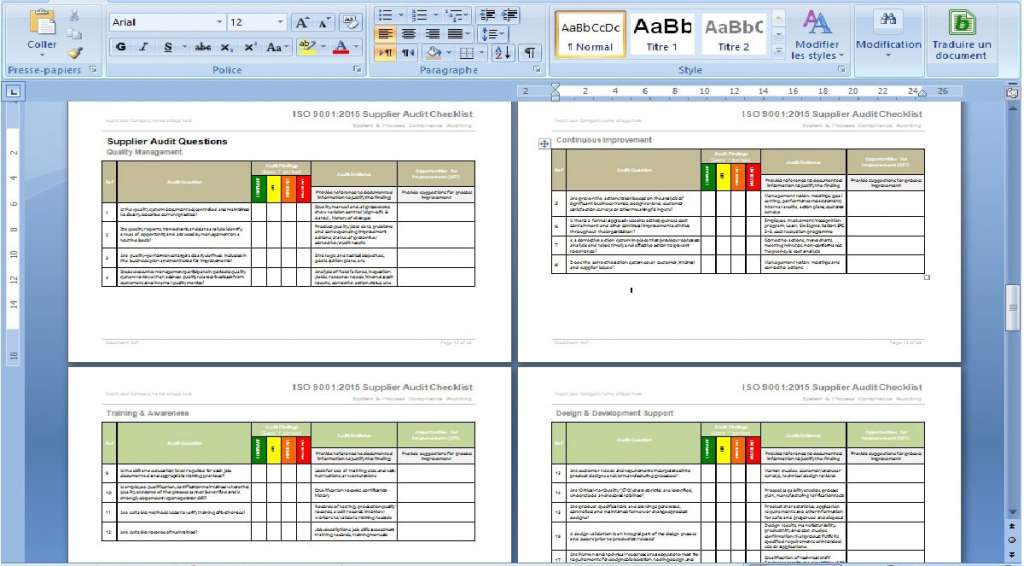
All documents are in MS Word or MS Excel, to make them very easy to customize for your business. You can customize them by adding company logos and colors, and edit headers and footers to match your favorite style.

We have already completed about 90% of the information requested on the documents. To complete them you must fill in only the name of the company, the responsible parties, and any other information unique to your company. you will be guided through the process, commenting on the elements that are needed and those that are optional.
We presented the IATF 16949 documentation, so as to assure all its users that they have completed everything accurately and with the utmost efficiency.
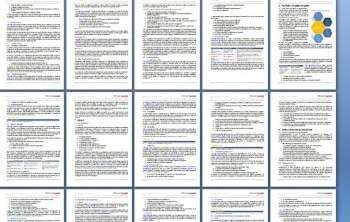
All the documents are made so that you can follow the proposed order perfectly, which allows you to make sure that nothing is missing, and that no one gets lost in the process.
The included comments and flowcharts help your staff understand each document and its usefulness, which helps you to make quality management more fluid, and processes easier to follow.
Features of the complete IATF 16949 Kit
Price: 489 $
– Documentation included: 58 documents for the implementation of IATF 16949
– MS Office 2007 format, MS Office 2010, MS Office 2013
– Language: English
– Documents are fully editable – just enter the information specific to your business.
– Acceptable for the IATF 16949 accreditation audit? Yes, all the documents required by IATF 16949 are included, as well as the quality policy and the current but optional procedures.
Instant Delivery – The package is downloadable immediately after purchase
Free Consultation – In addition, you can submit two complete documents for review by professionals.
Created for your business – The models are optimized for small and medium businesses.


Complete IATF 16949 Package
The complete kit to implement IATF 16949
Price : 489 $
Total Implementation Duration: 8 Months
IATF 16949 Implementation Project Plan
Achieving IATF 16949 is a significant milestone for any organization, signifying a commitment to data protection and privacy. Our expert consultants are here to guide you through every step of the implementation process, from initial consultation and gap analysis to final assessment and compliance certification. With our comprehensive project plan, tailored training programs, and dedicated support, we ensure your organization meets all IATF 16949 requirements efficiently and effectively. Partner with us to enhance your organization’s credibility, improve data handling processes, and gain trust on an international scale. Let us help you achieve excellence in data privacy management.
Introduction: Project Kick-off and Gap Analysis (Duration: 1 Month)
Introductory Tasks
1.1 IATF 16949 Kick-off and Awareness
Task: Organize Kick-off Meeting
- Description: Conduct a project kick-off meeting to discuss the objectives, scope, timelines, and resource requirements for IATF 16949:2016 implementation, engaging senior management and key stakeholders.
- Deliverables: Project plan, meeting agenda, and minutes.
- Meeting: Initial consultation with management and team leads.
1.2 Perform Gap Analysis
Task: Conduct Gap Analysis Against IATF 16949 Requirements
- Description: Assess the organization’s current quality management system (QMS) against IATF 16949:2016 requirements to identify areas that need improvement.
- Deliverables: Gap analysis report with identified gaps.
- Meeting: Review findings with management and quality teams.
Section 1: QMS Planning and Documentation (Duration: 2 Months)
2.1 Develop Quality Management System (QMS) Documentation
Task: Define Quality Policy and Objectives
- Description: Develop the organization’s quality policy and quality objectives in line with IATF 16949:2016. Ensure these are aligned with the organization’s strategic direction and customer-focused.
- Deliverables: Documented quality policy and objectives.
- Meeting: Review with senior management for approval.
Task: Develop Process Documentation
- Description: Document all key processes required by IATF 16949, including production, customer requirements, and supporting processes (e.g., corrective actions, management review, internal audits).
- Deliverables: Process maps, procedures, work instructions.
- Meeting: Process review meeting with process owners and the QMS team.
2.2 Define Organizational Structure and Roles
Task: Define and Document Responsibilities and Authorities
- Description: Document the responsibilities and authorities of personnel involved in the QMS, ensuring alignment with the IATF 16949 standard.
- Deliverables: Organizational chart, roles, and responsibilities matrix.
- Meeting: Review and confirm responsibilities with department heads.
Section 2: Risk Management and Operational Control (Duration: 1 Month)
3.1 Implement Risk-Based Thinking
Task: Conduct Risk Assessments (IATF 16949 Clause 6.1)
- Description: Implement risk-based thinking by identifying and assessing risks and opportunities related to the QMS, product quality, and process performance.
- Deliverables: Risk assessment reports and action plans.
- Meeting: Risk review meeting with senior management and key stakeholders.
3.2 Develop and Implement Operational Controls
Task: Establish Controls for Critical Processes
- Description: Define and implement operational controls for production processes, including controls for product safety, defect prevention, and special characteristics.
- Deliverables: Operational control procedures, process controls.
- Meeting: Training session with staff on new operational controls.
Section 3: Supplier Management and Control of External Providers (Duration: 1 Month)
4.1 Supplier Selection and Evaluation (IATF 16949 Clause 8.4)
Task: Implement Supplier Evaluation and Approval Process
- Description: Develop a supplier selection and evaluation process to ensure that external providers meet the organization’s quality and delivery requirements.
- Deliverables: Supplier evaluation criteria, approved supplier list.
- Meeting: Review supplier performance data and approval criteria with procurement.
4.2 Control of External Providers
Task: Implement Controls for Purchased Products and Services
- Description: Establish controls to ensure that externally provided products, processes, and services conform to IATF 16949:2016 requirements.
- Deliverables: Supplier control procedures and monitoring plans.
- Meeting: Supplier control review with procurement and quality assurance teams.
Section 4: Internal Audits and Corrective Actions (Duration: 1 Month)
5.1 Develop Internal Audit Program (IATF 16949 Clause 9.2)
Task: Create an Internal Audit Plan
- Description: Develop a comprehensive internal audit program to assess the effectiveness of the QMS. Ensure audits cover all key areas, including customer-specific requirements.
- Deliverables: Internal audit plan, schedule, and audit checklist.
- Meeting: Audit planning meeting with the audit team and QMS manager.
Task: Conduct Internal Audits
- Description: Perform internal audits of key processes to verify compliance with IATF 16949 requirements and identify any non-conformities.
- Deliverables: Internal audit reports, non-conformance reports.
- Meeting: Post-audit meeting to review findings and corrective actions.
5.2 Implement Corrective Action Process (IATF 16949 Clause 10.2)
Task: Develop and Implement Corrective Action Procedures
- Description: Establish a corrective action process to address non-conformities identified during internal audits, customer complaints, or production issues.
- Deliverables: Corrective action procedures and reports.
- Meeting: Review corrective action process with management and process owners.
Section 5: Product Design and Development (Duration: 1 Month)
6.1 Implement Product Design and Development Process (IATF 16949 Clause 8.3)
Task: Define and Document Design and Development Procedures
- Description: Establish a process for product design and development that complies with IATF 16949 requirements. Include controls for design inputs, outputs, validation, and verification.
- Deliverables: Design and development procedure, design review templates.
- Meeting: Design review with engineering and quality teams.
6.2 Manage Design Changes and Customer Requirements
Task: Implement Change Control for Design and Development
- Description: Establish a process for managing design changes, ensuring all changes are documented, validated, and communicated to customers where applicable.
- Deliverables: Design change control procedures, change logs.
- Meeting: Review with engineering and customer service teams.
Section 6: Monitoring and Measurement (Duration: 1 Month)
6.1 Develop Measurement System Analysis (MSA) (IATF 16949 Clause 7.1.5.1.1)
Task: Implement Measurement Systems and Calibration Program
- Description: Ensure measurement systems and devices are accurate and reliable. Develop and implement a calibration program to maintain measurement integrity.
- Deliverables: Calibration schedule, MSA reports.
- Meeting: Review MSA findings with quality assurance and technical teams.
7.2 Implement Statistical Process Control (SPC) (IATF 16949 Clause 9.1.1.1)
Task: Establish Statistical Process Control for Key Processes
- Description: Implement statistical process control (SPC) methods to monitor and control production processes, ensuring variation is minimized.
- Deliverables: SPC procedures, control charts.
- Meeting: SPC training session with production and quality teams.
Final Assessment: Certification Audit Preparation (Duration: 1 Month)
8.1 Conduct a Pre-Certification Internal Audit
Task: Perform Pre-Certification Internal Audit
- Description: Conduct a full internal audit to verify the organization’s readiness for the IATF 16949 certification audit. Identify and address any remaining non-conformities.
- Deliverables: Pre-certification audit report.
- Meeting: Post-audit meeting to review findings and prepare corrective actions.
8.2 Certification Body Selection and Audit
Task: Select Certification Body and Schedule Certification Audit
- Description: Research and select an accredited certification body for the IATF 16949 audit. Coordinate audit schedules and ensure the organization is prepared.
- Deliverables: Certification body selection report, audit schedule.
- Meeting: Final meeting with management to confirm readiness for certification.
This 8-month project plan for IATF 16949:2016 implementation ensures a structured approach to achieving certification, with a focus on process improvement, risk management, supplier control, and continuous monitoring. The plan ends with a pre-certification audit and certification preparation, followed by ongoing monitoring and improvement of the QMS.
What our customers think:

The IATF 16949:2016 Complete Package was exactly what our automotive manufacturing company needed. Instead of hiring a consultant and spending weeks developing our system from scratch, this package provided ready-to-use templates and step-by-step guides that saved us both time and money. The expert support we received through the 1-on-1 sessions was invaluable, and we were able to achieve certification in record time. I highly recommend this package for anyone looking to streamline their accreditation process.”
Olivia R.
Quality Assurance Manager


“This package was a huge time and money saver for our business! We were able to get all the documentation we needed for IATF 16949:2016 compliance without the hassle of creating everything ourselves. The templates were easy to edit, and the detailed guides made the whole process straightforward. Instead of hiring expensive consultants, we completed the certification process efficiently and at a fraction of the cost. Highly recommended for companies looking for a cost-effective solution.”
Daniel S.
Operations Director

Frequently Asked Questions
How long will it take to receive the complete package of documents after I place my order?
Upon completing your purchase, you will be redirected to the download page immediately. Additionally, a link to access your file will be sent to your email. The files are provided in a .zip format, which you will need to extract. If you encounter any issues with the download, please do not hesitate to contact us at support@qse-academy.com. Our support team is always ready to assist you.
What payment methods can I use?
We offer several payment options for your convenience. You can choose to pay using a credit card, debit card, or PayPal. Additionally, we provide a flexible layaway plan for those who prefer to pay for their purchase over time. If you have any questions about our payment options, please don’t hesitate to contact us.
Do you offer a money-back guarantee if I'm not satisfied with the service?
We offer a 30-day money-back guarantee. If you are not satisfied with our service for any reason, you can cancel within the first 30 days and receive a full refund, no questions asked.
Is there ongoing support or assistance available after my purchase?
Yes! At QSE Academy, our ISO experts provide continued support by answering your queries via email. You can expect a detailed response within 24 to 48 hours to help you move forward confidently.
Are updates to the documentation package included after purchase?
Absolutely. To ensure your documentation remains reliable and compliant, we update our packages every 6 months. Existing customers receive these minor updates at no extra charge. However, when there’s a major revision of the ISO standard itself, you’ll need to purchase an updated kit to align with the new standard.
Will I receive a valid invoice for my business expenses after completing the purchase?
Yes. After completing your purchase, you’ll immediately receive a valid invoice suitable for business and tax purposes. If you require any specific adjustments or details added to your invoice, please reach out to our support team.
Can I customize these documents for my company's specific needs?
Yes, the documents are fully customizable! You can easily edit, modify, and add your company’s logo to tailor them specifically for your organization. Additionally, if you’d prefer assistance, we offer a personalized “Done-For-You” customization service to deliver audit-ready documents tailored exactly to your organization’s requirements.
How quickly can I implement this ISO standard using your documentation?
Implementation time varies depending on your company’s engagement, resources, and experience. Typically, we’ve observed businesses successfully achieve compliance and certification within 3 to 6 months using our clear, structured documentation packages.
Do these documents guarantee successful certification?
While our documentation packages significantly simplify the certification process, the ultimate success of ISO certification depends on effective implementation. For organizations seeking further assurance, we also provide comprehensive support services, including guided implementation and internal audits, to help you confidently pass your certification audit.
Do you offer hands-on assistance if I need extra help during implementation?
Definitely! If you prefer a complete, hands-off solution, we offer a premium “Done-For-You” implementation service. Our ISO experts handle the full preparation, providing you with audit-ready documentation and detailed implementation support. You simply adopt the customized materials, follow the tailored guidelines, and confidently pass your audit.
